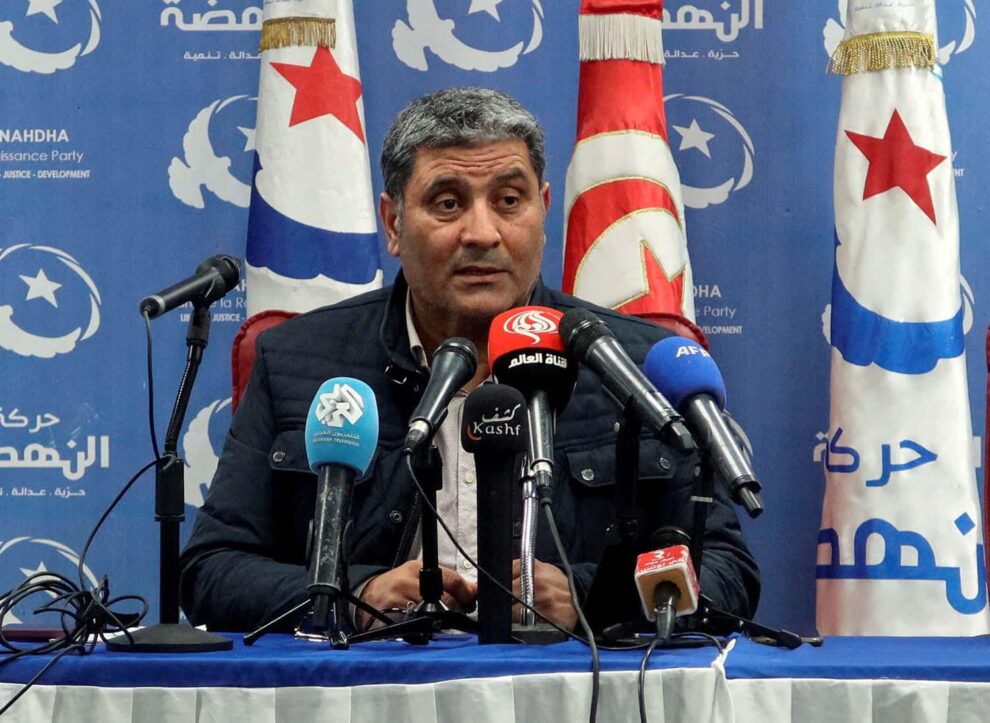BEIRUT — Tunisian authorities continue their crackdown against known critics of President Kais Saied with the arrest this week of two current officials and a former one from the moderate Islamist Ennahda party.
The interim head of Ennahda, Mondher Ounissi, was arrested by police on Tuesday while driving his car. He was taken to “an unknown destination,” according to a statement by the party. No reason was given for the arrest, which Ennahda said came without prior notification.
The targeting of Ounissi comes days after the publication of an audio recording attributed to him in which he allegedly accuses certain Ennahda officials of attempting to take over the party and receiving illegal funding from foreign parties.
Minutes after Ounissi was detained, Abdel Karim Harouni, who heads Ennahda’s Shura Council, was also arrested by security forces and taken to an unknown location days after he was placed under house arrest.
Authorities did not provide a reason for Harouni’s arrest. On Saturday, Ennahda condemned the house arrest of its official, which came one day ahead of a planned meeting to prepare the party’s congress scheduled for October. The party accused authorities of “intentionally restricting and besieging [political] parties.”
On Tuesday, Hamadi Jebali, a former prime minister who also served as secretary general of Ennahda until 2014, was detained during a raid on his home in the city of Sousse, according to the official news agency Tunis Afrique Presse (TAP). Policemen also confiscated his phone and personal computer while searching his home.
Ennahda has faced an ongoing crackdown since Saied’s power grab in July 2021. Ennahda party head Rached Ghannouchi was arrested this past April and sentenced in May to one year in prison on terror-related charges. A day after his arrest, the government on April 18 banned all meetings at Ennahda offices and shut down the party’s headquarters.
Ennahda held the majority of seats in parliament before Saied dissolved the chamber in 2021 as part of his controversial measures that were seen as eroding the remaining pillars of Tunisia’s post-Arab Spring democracy. Ennahda and other opponents have labeled Saied’s actions as a coup.
Source : Al Monitor










